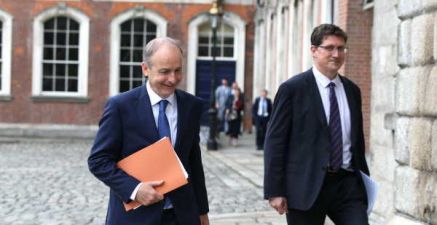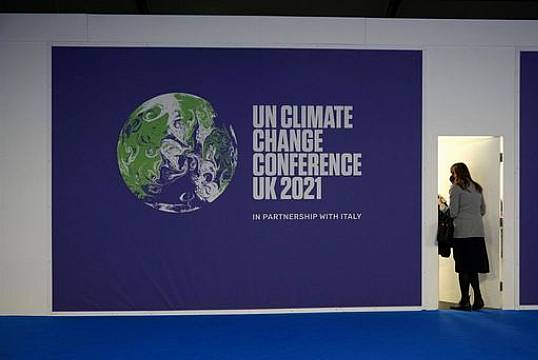Ireland is falling seriously short in its contribution to avert the "gravest crisis facing humanity" and must step up its commitments to "pay its fair share of the devastating costs of climate change", Trócaire said today.
In a policy document issued to mark the start head of the crucial Cop26 Climate Change Summit in Glasgow, the overseas development agency said while Ireland’s recently published Climate Action and Low Carbon Development Bill sets out a target of reducing emissions by 51 per cent by 2030, we remain the second highest emitters per capita in the EU.
Emissions
Trócaire said it is unacceptable that the "gap between Ireland and our neighbours is widening at a time when we need to be catching up as fast as possible". By comparison to Ireland the EU has set a target of reducing emissions by at least 55 per cent by 2030.
Trócaire outlines three key areas where collective global action is needed to "stave off a humanitarian disaster fuelled by the impacts of climate change".
Firstly, in relation to climate emissions, Trócaire says success at Cop26 can be achieved only if high-emitting countries show genuine leadership and strongly commit to closing the gap and keeping global temperatures below 1.5 degrees.
"While recent progress is welcome, climate policies in place across the world will not keep global warming within the limits that governments agreed in Paris."
Secondly Trócaire says progress on climate finance for adaptation is essential to support countries least responsible for creating the climate change problem, but who suffer the worst of its impacts including sea level rises, floods and droughts. The agency says increased adaptation finance, and the development of a Global Goal for Adaptation as called for in the Paris Agreement, is necessary.

Thirdly the agency says we are now in an era of “loss and damage”, irreparable harm caused by climate change that has huge costs for people in low-income countries. Cop26 must establish a new financing facility for loss and damage, specifically to support low-income countries.
'Historic opportunity'
Trócaire CEO Caoimhe de Barra said: “Cop26 cannot merely be a 'talking shop'. The international community must seize the historic opportunity to agree crucial decisions to put the world on track to deliver on climate action.”
She added: “The harsh reality is that 2021 was a year of unprecedented climate impacts compounding existing health, poverty and inequality crises. Trócaire’s work across the world has given us first-hand experience of the unequal impact of climate change, especially on women and indigenous peoples who are bearing the brunt of climate impacts.
“We support communities to pick up the pieces when climate-related disasters strike. However, the ability of people to bounce back is being severely eroded. There is a limit to what the poorest people can be expected to adapt to. This is a matter of global justice.”







